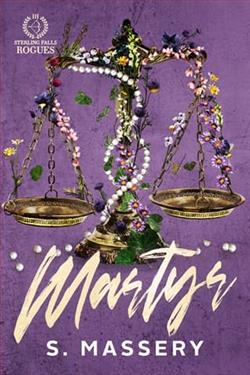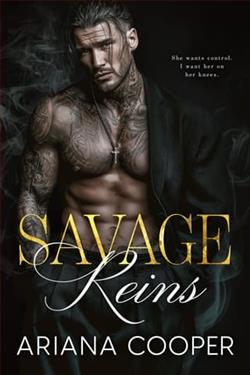Page 13 of Last Letter Home
‘Don’t worry. I don’t. It’s like my dear old dad says, if something’s meant to happen . . .’
‘You should make it happen. Give fate a nudge. What about that dating site Louisa swears by? She says it’s brilliant.’
‘Brilliant for Louisa, yes. She’s tougher than me.’ She tried not to sound sarcastic, but while their outgoing friend Louisa thrived on the excitement of meeting men she’d only previously talked to online, Briony was appalled at some of her stories. And the very idea of advertising herself in that horribly public way made her feel cold with horror. The possibilities for rejection seemed endless.
‘Is there really no one at the college you like, Bri?’
She thought about it. There were several men who were the right age and, so far as she knew, single, but one was probably gay, and the only one she fancied of the others wasn’t interested, she could tell. She shook her head and mumbled, ‘Not really. And if it went wrong, I’d still have to go on working with them.’
‘You’re looking at the downside all the time. I think you should try online.’
Briony didn’t have time to respond before Aruna’s phone burst into a jaunty pop tune. Luke was calling to say his tooth was fixed and that he would meet them by the car in a few minutes.
‘What will you do the rest of the summer?’ Aruna murmured, as they set off. ‘Some of us have to go straight back to work, of course, but you academics . . .’
‘Same here, actually.’ Briony sighed. ‘I’m teaching on summer schools for two weeks – you know, for visiting students – and then I’ve got the rewrites of my book to do. The new publisher is brilliant, but, blimey, it’s more difficult writing for a non-academic audience than I thought. My editor’s come up with so many suggestions. Anyway, once I’ve tackled that, I might take a week or two off.’
‘Sounds good. What will you do?’
‘I don’t know.’ She paused. ‘Actually I do. I’d really like to see what I can find out about Grandpa and what he was up to here. Maybe I’ll try to trace the woman who wrote those letters.’
‘Sarah, you mean?’
‘Yes.’ She’d given the matter some thought. It wasn’t simply Sarah, it was the whole new vista of the past that fascinated her. There was the spell of the ruined villa and its garden, the grainy images on the film of the man she was sure was her grandfather, Mariella’s story, all these were mixed up together somehow and she was curious about how and why.
‘Great idea. And, Briony, I know we shouldn’t be talking shop while we’re on holiday, but I can’t let a good chance go by. If there’s some amazing story in it you will let me know? It’s exactly the sort of programme I could interest the commissioning board in.’
‘I suppose so.’ Briony sighed. Once, before her horrible television experience, she’d have been pleased at Aruna’s suggestion. She’d worked at the same college since doing her PhD there and had reached a plateau regarding promotion. She supposed her new publisher would expect more of the kind of media exposure that had been so disastrous for her. After her ordeal by Twitter the thought was terrifying.
When she mentioned her plans to Luke, sitting in the back of the car as he navigated the tight winding roads back to their holiday villa, she was touched when he said, ‘You know you said Sarah lived in Westbury? Well, I googled it when I was waiting in the surgery. Westbury is not far at all from my parents in Norfolk. I’m sure if I asked nicely they’d have you to stay. They love having visitors. Dad misses London gossip.’
‘I’ll bear that in mind, Luke, thanks.’ She’d rather be somewhere on her own than staying with strangers and having to be on time for meals, but it was sweet of him to offer. ‘I can’t go anywhere for a while, though. There’s too much I need to do in London.’
This last bit was true, but she spoke wistfully. She could already feel the pull of the Norfolk past.
Seven
‘I hope it’s to your taste,’ Briony said, handing over the brace of bottles she’d brought from Italy. ‘It’s the local stuff.’
‘It looks very pukka to me,’ her father replied, his eyes lighting up as he examined the labels. ‘We like a good Italian red. Come on through. Lavender will be back from yoga in a few minutes.’
Briony’s father, Martin, had spent all his life in the Surrey market town of Birchmere. This was where his parents had settled after the war. In the 1950s and 60s his father had taken the 7.30 train up to London every morning to his job at the Ministry of Defence, arriving home again in time for supper at six-thirty. In 1968, eighteen and ready to leave school, Martin replied to an advertisement in the Birchmere Chronicle for a trainee reporter. His eager demeanour and an excellent reference from his headmaster managed to deflect attention from his predicted unexceptional exam results and won him the job. Soon he was painstakingly typing up stories about stolen bicycles, lost dogs and petty vandalism. It was a year after his training finished that his breakthrough came. He happened to be studying the price of engagement rings in the window of the local jeweller’s on the very afternoon that it was raided by a masked gang. His dramatic account of the hold-up and the gang’s getaway made the front page and was syndicated several times, and after that he never looked back. That and the pay rise he received gave him the courage to propose to his girlfriend Jean, the woman who was to be Briony’s mother. Martin remained loyal to the newspaper all his working life – until eventually it broke faith with him.
By 2006, when the brave little Chronicle, like many local newspapers, experienced declining circulation and was bought up by a national media conglomerate, he’d reached the dizzy heights of Managing Editor, in charge of the schedules. He loved this post, which gave him responsibility, but not too much, and when the new owners shed fifty per cent of the Chronicle’s workforce, the loss of his job nearly broke his heart. His second wife, Lavender, Briony’s stepmother, was still a few years off retirement as a school secretary, so what with his pension there was enough money coming in and he discovered a new interest: photography.
Briony entered the living room of her childhood home with the usual mixed memories of pleasure and irritation. The house was a comfortable mock-Tudor semi, a few minutes’ walk from the picturesque old town centre with its tree-edged pond and its market cross. When her mother had been alive it had been a cheerfully messy family home in which her brother’s half-constructed model planes had battled for space with her mother’s houseplants, stacks of her father’s vinyl records and her own books and sheets of flute music.
Now it was tidy and dust-free, the records replaced by CDs neatly arranged in alphabetical order on the shelves and Lavender’s tapestry cushion covers of cats adorning every chair. Their real-life cat, an elderly tabby, lay stretched out on the sofa, its ears twitching as it hunted birds in its dreams. Briony smiled at it fondly as she placed her bag on her father’s desk, and brushed accidentally against his computer mouse. The screen flickered into life at a photograph of a place she recognized.
It was a beautiful shot of what seemed more like a fairy pool with silver birch trees round it than the muddy town pond. She bent to examine it. ‘Is that the mere?’ she said, incredulous.
‘Right first time.’ Her father was a stocky man, his habitual pose being hands in pockets, chest out, conveying a sense of bonhomie. But now, at nearly seventy, he had a definite paunch, though his smiling blue eyes behind their spectacles still twinkled with boyish enjoyment.
‘It’s not a documentary photograph, though, is it, Dad? The mere is OK, but not this pretty. You’ve touched it up, haven’t you?’
‘Maybe just a tad. It’s art, Briony, that’s what you have to remember. People can’t bear too much reality these days.’ He laughed. ‘Now who said that?’
‘T. S. Eliot, I think. Well, you’ve certainly transformed it.’ She’d have preferred the realistic version with all its associations of her childhood. Feeding the ducks with her mother; Jimmy Sanderson throwing her lunchbox in the water when she was twelve; both memories made her sad for different reasons.















